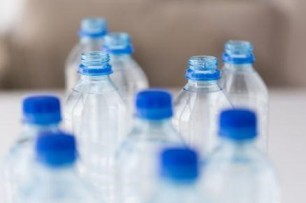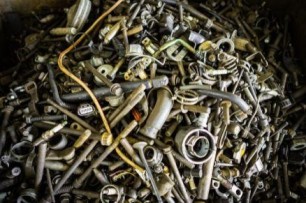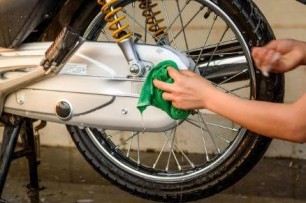General Insurance Blogs, Articles & Updates by - Magma HDI
Have us call you
- RENEW YOUR POLICY
- BUY NEW POLICY

All you need to know about road tax in India
Several state and national highways link India's vast geography. The country's roadways network stretches over 5 million kilometres while consistently increasing and is one of the largest roadway networks globally.
This vastly interconnected system is financed by the Indian Government that collects a sum of taxes from the citizens for the regular maintenance of the roads. Therefore, it is integral for every citizen to pay their taxes on time for the smooth functioning of the roadway system.
What is Road Tax?
When purchasing a vehicle, an individual must pay the base manufacturing price and a few extra charges. These additional charges typically include registration fees, relevant motor insurance, and a motor or Road Tax. The road tax is a sum of money paid while purchasing a vehicle in the state or country. The tax differs in all states as it is subjected to different tax structures and clauses.
A certain amount of road or toll tax is levied on vehicles using the state or national highways. These taxes differ according to state regulations, highway distance, and other relevant factors.
Who determines the Road Tax?
These Government bodies typically determine the road tax:
1. The state government levies the state vat tax, toll tax, annual or lifetime motor vehicles tax, and passenger and goods tax.
2. The Central Government levies the GST, customs duty, central excise, central sales tax, and other additional charges depending on the vehicle category.
Who has to pay the Road Tax?
While purchasing a vehicle, motor insurance is not the only cost that the individual must incur. The road tax is a compulsory tax that the individual must pay while purchasing a new vehicle. In India, this tax is charged on both private and commercial vehicles. Every individual who purchases motorised vehicles such as bikes or scooters, cars, auto-rickshaws, or even buses and trucks, needs to pay the tax irrespective of the vehicle's size.
Although the vehicle's manufacturing cost price primarily determines this tax, it is typically calculated considering other factors such as the motor or engine capacity, seating capacity, weight, and cost price. Thus, the road tax paid by every individual differs based on the vehicle as well as the state of purchase.
When and Where to pay the Road Tax?
An individual must pay the road tax for a vehicle during its registration. Depending on the state's mandate, the tax can be paid with flexibility, either one-shot payment or in yearly instalments. The vehicle owners may choose to pay the tax offline or online as per their convenience. If one is shifting their residence to another state, they need to re-register their car in the RTO of the new state and then repay the road tax.
To sum up, paying the road tax is an essential duty of every vehicle owner as a responsible citizen to help contribute and maintain the country's roadway network. However, being responsible for your vehicle's safety is equally important, and you can achieve this by purchasing a motor insurance plan that offers complete protection to your valuable asset.
Click HERE to know more about motor insurance.
Disclaimer: The information provided above is for illustrative purposes only. To get more details, please refer to policy wordings and prospectus before purchasing a policy.

Did you know about these side effects of excessive water consumption
Water is the solution to all problems, according to most people. And no doubt, it is indeed one of the most potent ingredients for a healthy life. Good skin, weight loss, better hair, or even mild headache, water is a cure for all. It is an essential resource for life to exist and flourish. However, excess of anything is poison. Similarly, excessive consumption of water can have several complications and side effects.
Surprising, isn’t it? This article is just for you if you want to know how overhydration can harm you. We will look at all the side effects that excessive water consumption can cause. Let’s take a look at different kinds of overhydration and their causes.
1. Overdrinking:
Overdrinking is a condition that happens when you drink too much water and your kidneys fail to flush out as much urine. This leads to water accumulating in your bloodstream, causing the dilution of essential substances.
2. Water retention:
This situation arises when the body cannot flush the water correctly due to various medical conditions. Several heart diseases and liver and kidney problems may cause water retention in your body.
The colour of the urine is a good indicator of water levels in your body. Pale yellow colour urine indicates the optimal amount of water in your body, while darker colour urine indicates dehydration. If, however, your urine is transparent, that is a clear indication of overhydration.
Now let’s take a look at the effects of overhydration:
1. Water intoxication:
When you consume more than five to six litres of water daily, you may start seeing symptoms of water intoxication. Some minor symptoms include headaches, cramps, spasms, vomiting, and fatigue. The more severe consequences of water intoxication can be seizures or blackouts.
If you start noticing symptoms like those mentioned above, rush to the nearest hospital. The excess amount of water in your body can lead to fluid build-ups in the cells leading to swelling. Swelling can lead to coma and seizures and can even be fatal if not given immediate medical attention.
2. Nausea or vomiting:
The symptoms of dehydration and overhydration are almost interchangeable. Since too much water is accumulated in the system, the body rejects the excess. This leads to diarrhoea or vomiting.
3. Headaches:
As the body’s salt levels deteriorate significantly, the cells swell. The swelling causes pressure inside the brain cells, causing severe headaches. Sometimes it can lead to clotting and troubled breathing as well.
4. Weakness and lethargy:
Like salt, the electrolytes dilute due to excess water in the body. Electrolytes are crucial when it comes to maintaining energy levels in your body. An imbalance in the electrolyte levels can lead to fatigue and weakness.
It can also cause muscle cramps and spasms. Your kidneys are working extra to flush out the unwanted water. This creates a hormonal reaction leading to drowsiness and feeling less energetic.
5. Swollen body parts:
Due to an increase in the water retention in your body, and the electrolyte imbalance, you may notice swelling in different parts of your body, such as the legs, lips and fingers. You may also notice a discolouration resulting due to hormonal changes caused by excessive water.
These are a few side effects of excessive water consumption. Excess water in your body can bring about various hormonal and other significant changes. Treatment for these should be taken under the guidance of a medical practitioner to avoid further complications. However, an immediate remedy to overhydration is the consumption of salts or electrolytes. Regaining the concentration of salt and electrolytes in your body can be a temporary cure.
Just like overhydration, there might be other issues in your body that you might not be aware of. Get an expert opinion to recognise any underlying issues and address them with proper and timely medication. Many online health insurance companies provide comprehensive coverage on all such check-ups and treatments that you might want to look into. Take advantage of this feature and benefit yourself and your loved ones.
Click HERE to know more about online health insurance companies.
Disclaimer: The information provided above is for illustrative purposes only. To get more details, please refer to policy wordings and prospectus before purchasing a policy.

Disadvantages of using duplicate spare parts for your car
Spare parts can either extend the life of a vehicle or cause it to fail instantly. Often fake replacement parts are created without the consent of the manufacturer. As a result, it is difficult to distinguish between genuine spare parts and counterfeit replacements. Furthermore, because fake parts are less expensive, consumers are more likely to purchase them to save money and fail to verify their validity.
The performance of fake spare parts is inferior to that of original replacements. You never know when they'll give out and do harm to the car's workings or its passengers. Purchasing car insurance can protect you from any damage caused to your vehicle. Always compare various new car insurance rates to find the best deal for you.
Here are some of the reasons why fake spare parts are dangerous.
1. Safety is at risk:
Fake spare parts may endanger not only the safety of the vehicle but also its passengers. To give an example, if you were to buy fake brakes, you might have trouble applying brakes on time. Fake engine spare parts can also result in a short circuit, potentially dangerous to the engine's functionality. As a result of these factors, counterfeit replacement parts are considered a safety hazard.
2. Additional expenses:
The majority of individuals believe that acquiring cheap spare parts will save them a significant amount of money. However, it results in increased expenditure because the fake spare component will often fail to function. Instead, authentic spare parts will save money because they will last longer and come with a warranty.
3. Has an impact on the vehicle's warranty:
Warranties are valid guarantees for a specific period. The carmaker agrees to repair any defective spare parts or repair the vehicle. Using fake spare parts may void the warranty completely. Another critical reason to avoid using counterfeit spare parts is to protect yourself from identity theft.
4. Safety concerns for other vehicles:
If you use forged spare parts, your vehicle's systems will not perform to their maximum capacity. This means you will be putting other people in danger when you drive.
5. Poor quality:
Given the heavily low price of fake spare parts, the companies are frequently forced to compromise quality and appearance. Moreover, the materials utilised are of poor quality. As a result, these parts are not constructed to survive for an extended period. Therefore, spending a little more money on authentic parts is preferable rather than settling for low-quality counterfeit replacement parts that pose a higher risk.
6. Other potential risks:
For various reasons, it's best to avoid using counterfeit replacement parts. Like, at higher speeds, fake tyres might deflate and fall apart. Fake oil filters may be ineffective in filtering, making the counterparts go dry. This will have an impact on the engine's operation. Installing cheap seatbelts and airbags is a terrible idea that can be life-threatening during mishaps.
In addition to reducing the vehicle's depreciation value, buying fake parts is a poor decision for various reasons. These faulty spare parts can betray at any point, making them more dangerous. So, as a sensible customer and a responsible citizen, and refuse to buy fake spare parts. Also, check out the most affordable new car insurance rates that can protect you in the event of an accident.
Click HERE to know more about the new car insurance rates.
Disclaimer: The information provided above is for illustrative purposes only. To get more details, please refer to policy wordings and prospectus before purchasing a policy.

Here are a few important tips to undertake while taking your bike for a wash
If you have just come back from a long trip and your bike is covered in dust and looked nothing like you would want it to, then this article is for you. We will look into some of the essential things that need to be kept in mind when you plan on washing your bike to avoid making mistakes that might prove to be expensive later on.
Cleaning and regular maintenance ensure the long life of your two-wheeler. It helps you monitor any minute structural changes and avoid the accumulation of corrosive substances like road salt, grime, etc. Besides, needless to mention here, having bike insurance is non-negotiable, and you might want to look into some bike insurance online before reading on. A good bike insurance protects your bike with financial cover against any damages to it.
1. Cleaning kit:
Having your cleaning supplies in order before washing is essential to avoid latency and prevent the water from getting into places it shouldn’t. So, get your sponges, washcloths, spray bottles, microfiber cloths, and other items ready for ease of access and prompt use of them. Since each of these tools serve a unique purpose, it is advised to understand the purpose of each. E.g., Sponges are used to gently remove any dust particles while brushes are used to get into crevices.
2. Working condition:
It is crucial to have a good work area set up before washing the bike. Avoid washing it immediately after riding it. Let the engine cool down so that it does not go into a thermal shock when you wash it with cold water. Avoiding direct sunlight is also advised as it can dry up the soap faster, and any undue pressure can lead to scratches and watermarks on the surface.
3. Plug exhaust:
Ideally, the exhausts are structured to avoid water pooling, but having a rubber plug for your exhaust is a good idea. Make sure to plug the exhaust before washing the bike to prevent water from getting into the pipe and clogging the exhaust unnecessarily.
4. Choose your cleaning product wisely:
While many people believe that laundry detergent is a good choice for your motor vehicles, it is not the case. Products that are not explicitly suited for them can damage the paint and the structural integrity of the metal owing to the harsh chemicals present in generic detergents. Using foams can be a good alternative for washing brushes.
5. Do not use hosepipes:
Hose pipes can be the easiest way to water your plants, but it is not the best one when it comes to washing your bike. Directly streaming powerful jets of water can harm the paint job on your vehicle and can also lead to dirty patches.
Buying nozzle heads that can be attached to the tip of the pipe so that water can be sprayed harmlessly is a good choice. These are some things that you need to keep in mind before taking your bike to wash. Washing your bike for the first time can come with many questions. The tips above will help you in answering a few of those.
Owning a motorcycle is an excellent feeling, but it also comes with some responsibilities. Regular maintenance and proper servicing, albeit expensive, can ensure the longevity of your bike. However, having bike insurance promises that these services do not burn a hole in your purse. Therefore, without any delay, invest in bike insurance online, and provide the best care to your two-wheeler to cover more distances together.
Click HERE to know more about bike insurance online.
Disclaimer: The information provided above is for illustrative purposes only. To get more details, please refer to policy wordings and prospectus before purchasing a policy.


